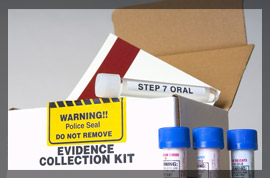Archival Notice
This is an archive page that is no longer being updated. It may contain outdated information and links may no longer function as originally intended.
Home | Glossary | Resources | Help | Contact Us | Course Map
After determining what evidentiary samples are appropriate for submission based on the state's theory of the case, prosecutors should prioritize the samples for analysis. Prosecutors may want to consult with their DNA analyst prior to typing the evidence to determine which evidentiary items are most likely to yield results. Prosecutors should be mindful of the laboratory's limited resources and its case backlog, and consider the financial consequences of typing multiple items whose evidentiary value may be merely cumulative. The choice of items to be tested should be guided by identifying the real issues at trial and the evidentiary items most likely to aid in their resolution.
Prosecutors need to identify for the lab the specific items to be typed. If an item initially typed does not yield results, prosecutors must identify and prioritize other items to be typed. They should remember the analysis cannot be completed without reference samples for comparison purposes from the suspect and/or victim and/or crime scene. Additionally, prosecutors should be prepared to obtain by consent or court order.
Additional Online Courses
- What Every First Responding Officer Should Know About DNA Evidence
- Collecting DNA Evidence at Property Crime Scenes
- DNA – A Prosecutor’s Practice Notebook
- Crime Scene and DNA Basics
- Laboratory Safety Programs
- DNA Amplification
- Population Genetics and Statistics
- Non-STR DNA Markers: SNPs, Y-STRs, LCN and mtDNA
- Firearms Examiner Training
- Forensic DNA Education for Law Enforcement Decisionmakers
- What Every Investigator and Evidence Technician Should Know About DNA Evidence
- Principles of Forensic DNA for Officers of the Court
- Law 101: Legal Guide for the Forensic Expert
- Laboratory Orientation and Testing of Body Fluids and Tissues
- DNA Extraction and Quantitation
- STR Data Analysis and Interpretation
- Communication Skills, Report Writing, and Courtroom Testimony
- Español for Law Enforcement
- Amplified DNA Product Separation for Forensic Analysts


